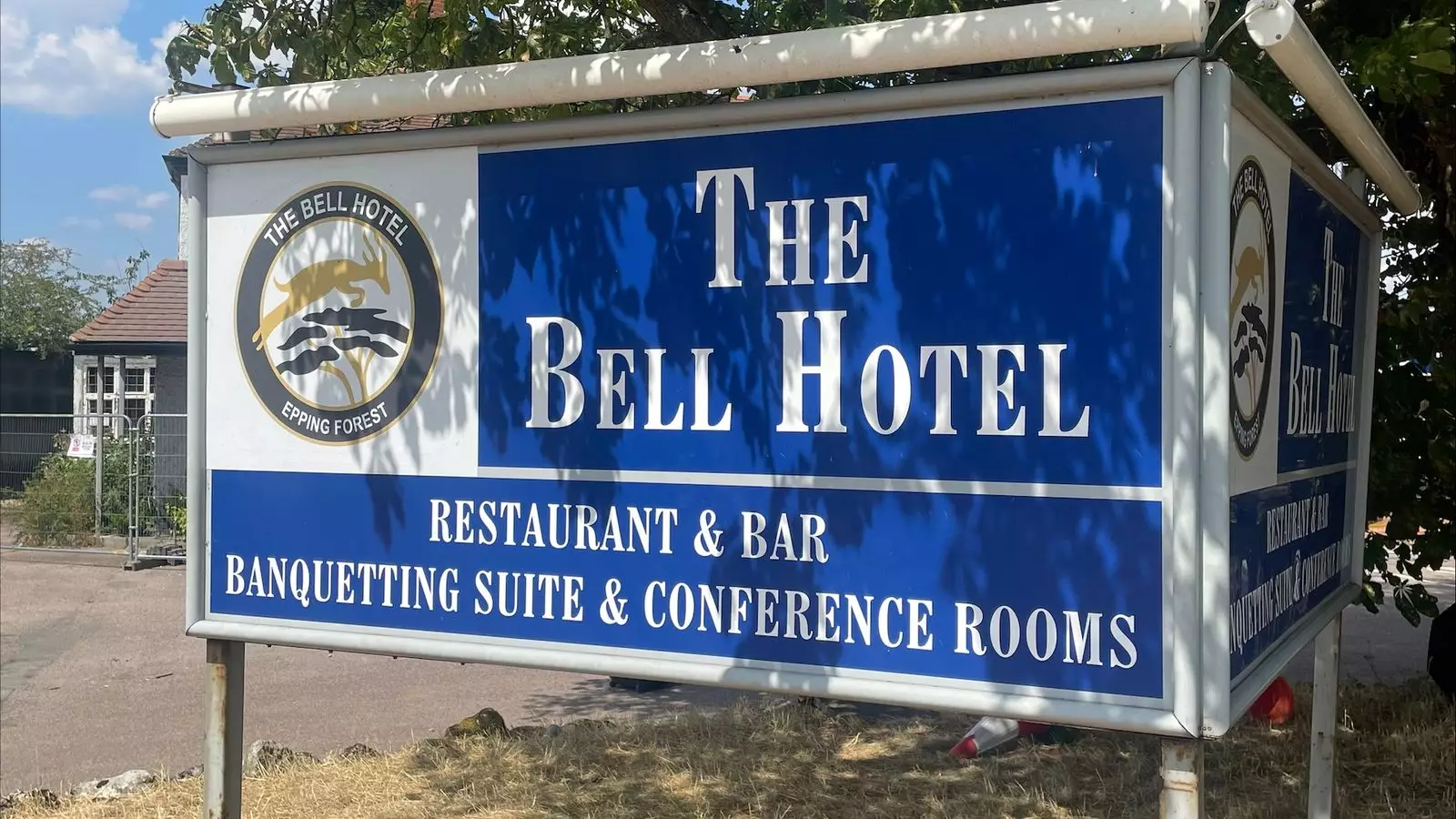In recent headlines, the fight over the treatment of asylum seekers reveals a troubling divergence between public sentiment and policy realities. At the heart of this controversy lies a fundamental question: Should local communities bear the burden of hosting those fleeing conflict and hardship, or is there a more balanced approach that respects both humanitarian needs and community stability? The recent legal battle in Essex exposes a darker truth about how seemingly innocent acts of compassion—such as providing shelter—can be manipulated into a tool for divisiveness and neglect.
What’s particularly revealing here isn’t just the council’s decision to block housing in a hotel, but the underlying tensions that have been stirred up by the presence of asylum seekers in local areas. Protests, accusations of misconduct, and claims of breach of planning rules all serve to distract from a more substantive debate about immigration policy and social integration. The narrative pushed by some stakeholders—framed as protecting the rights of residents—often veers dangerously into us-versus-them rhetoric. It’s a reminder that even well-intentioned efforts to provide sanctuary can be co-opted to sow division.
Legal and Moral Challenges in Balancing Interests
The legal proceedings in Essex cut through the facade of compassionate policy, exposing the contradictions inherent in managing immigration at a local level. The council’s push for an injunction isn’t solely about the hotel’s use; it’s about asserting control over a situation that has spiraled out of local authorities’ ability to manage compassion with order. The judge’s decision to temporarily halt the housing arrangements points to a recognition that existing practices may be unsustainable or even damaging. Yet, criticism from the hotel operator highlights the precarious position that businesses face—caught between contractual obligations and public backlash.
This clash underscores a broader moral dilemma: How do we reconcile the urgent need to offer refuge with the rights and well-being of the existing community? Merely legislating to block accommodation ignores underlying systemic failures—insufficient infrastructure, flawed planning, and an often uncoordinated policy environment. Instead of viewing this as a binary conflict—either housing or protesting—it’s imperative to question why solutions so often seem reactionary rather than strategic. The community’s anxieties are real, but masking them as objections to humanitarian efforts ultimately diminishes genuine compassion for those in desperate circumstances.
The Cost of Political Posturing and Disregard for Human Rights
There’s a dangerous tendency to frame asylum seekers as threats rather than people in need. The recent accusations involving assault and protests outside the hotel serve to reinforce this narrative—yet they largely overlook the broader context. These are isolated incidents, not representative of entire groups. Still, they fuel a climate of fear and suspicion that can justify draconian measures, such as denying housing or evictions. The law’s capacity to protect both the rights of the vulnerable and the interests of the community must be tempered with a moral clarity that refuses to dehumanize those seeking refuge.
Furthermore, the hotel’s role as a temporary shelter—repeated over years—raises questions about the effectiveness of current policies. Are we truly offering safe, humane solutions, or just perpetuating a cycle of marginalization? The hotel’s financial dependence on housing migrants reveals a flawed approach that reduces human lives to economic transactions, rather than addressing the root causes of displacement. Housing is a basic human right, yet the political landscape often reduces it to a bargaining chip, exploited to serve short-term political agendas rather than long-term societal welfare.
The Future of Compassion and Community Cohesion
This controversy underscores a broader societal challenge: how to protect local communities from being overwhelmed without abandoning the fundamental principle of human compassion. The legal action in Essex is symptomatic of a system struggling to balance these competing priorities, often leaning toward exclusion and harsh restrictions. But real progress demands of us a willingness to rethink, to innovate, and to prioritize humane policies that integrate rather than alienate.
As debates intensify, it becomes clear that the solution is not simply to block or facilitate housing—nor to blame the asylum seekers for social strains. Instead, a more honest acknowledgment of systemic failures, combined with comprehensive planning and genuine community involvement, is necessary. Whether or not temporary injunctions succeed, the underlying questions about our shared humanity, community resilience, and moral responsibility remain. Only through a nuanced, compassionate approach that refuses to ignore the complexities of migration can we hope to forge a society that upholds dignity, security, and justice for all.


Leave a Reply